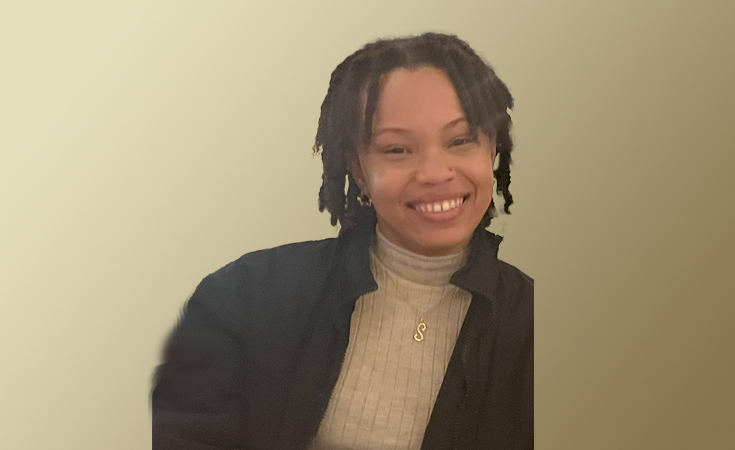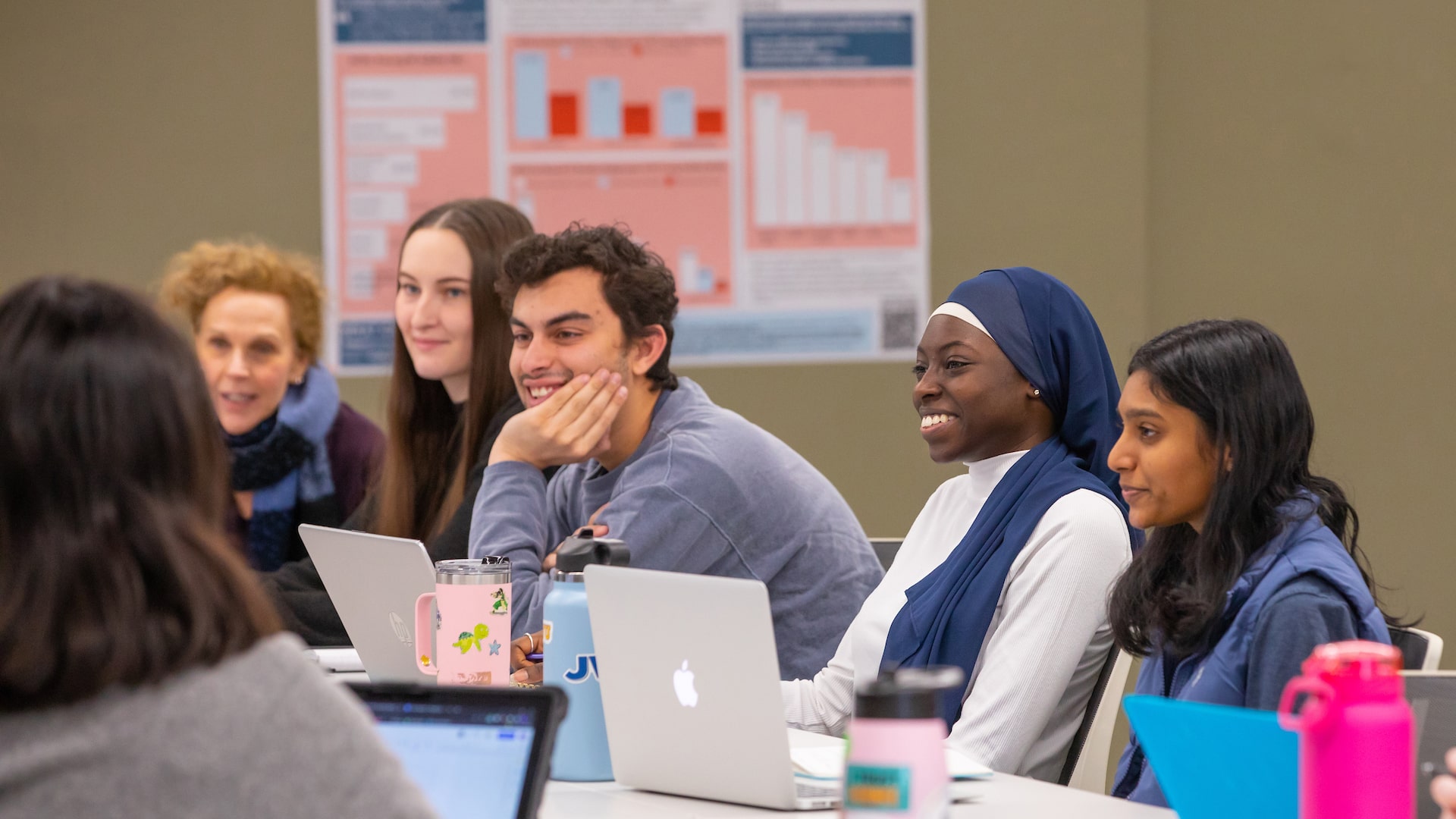Researching the Links Between Insomnia & Pornography Usage
Research
“Insomnia and Pornography Addiction in Rhode Island Young Adults,” Rhode Island Medical Journal, June 2025
Researchers
Associate Professor Jonathan K. Noel, Ph.D., MPH
Steve Jacob '26
Sheriyah L. Hicks '27
Postdoctoral Teaching & Research Fellow Kelsey A. Gately, OTD, OT/R
Associate Professor Samantha R. Rosenthal, Ph.D., MPH
Project Objective
Health Science major Steve Jacob '26 and Healthcare Administration major Sheriyah L. Hicks '27 contributed to a study led by Professor Noel to examine whether there is a connection between trouble sleeping (insomnia) and pornography addiction in young adults in Rhode Island. The team wanted to know if people who have sleep problems are more likely to develop unhealthy patterns of pornography use. They also wanted to see if this connection is stronger in certain gender or sexual identity groups — especially among straight, cisgender men. The goal was to better understand these patterns so that health providers, educators and universities can offer more targeted support.

Project Goals & Skills
In examining insomnia’s potential links to pornography usage, particularly across gender and sexual identity lines, the project aimed to identify how common pornography addiction is and whether insomnia increases the risk, especially among cisgender, heterosexual males.
Jacobs (at right) and Hicks (below) analyzed survey data using validated mental health tools and statistical methods. Over the course of the project, they gained skills in research design, data analysis, and interpreting health disparities through an equity lens. The project also helped the them develop strong scientific communication and critical thinking skills for use in public health and behavioral research.
Results & Future Implications
The study found that insomnia was linked to higher odds of pornography addiction, but only among cisgender heterosexual males. Overall, 7.9% of participants screened positive for pornography addiction and 16.6% for insomnia. Alcohol use disorder also increased the risk, while cisgender heterosexual females had significantly lower odds.
These results suggest that young men with insomnia may benefit from targeted screening and support. Universities and healthcare providers should consider male-focused mental health programs and include pornography literacy in sex education. Future research should explore these patterns across a broader range of gender and sexual identities.

The Benefits of Working on Research
Sheriyah “Cora” Hicks noted the benefits of working with the Center for Student Research & Interdisciplinary Collaboration (CSRIC), “Working on this project has allowed me to explore research in a way that many students are not often able. This topic is often avoided and not comfortably discussed, being able to add to the literature on a taboo topic is an important step toward understanding the needs and potential treatments this group may need.”
Jacob also noted,"Research has allowed me to work firsthand with real-world public health issues. From designing the survey to presenting the results, I’ve learned how to draw conclusions from complex data and apply those insights to drive meaningful change. [Getting published] in the Rhode Island Medical Journal allowed me to share these findings with a broader audience of healthcare professionals, ensuring informed decisions that promote the better health of my local Providence community."

